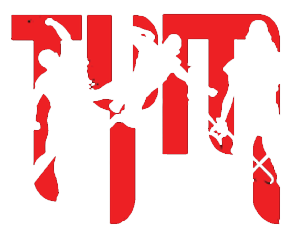I'm no mathematician but when it comes to this argument i've always thought it was a terrible thing.
A number that is not yet a defined number being compared to a concrete number is just weird.
I may have a misunderstanding seeing as how i didn't study math to this extent, but what would credentials change about absolute values of a number?
When math takes a theoretical turn like this it reminds me of god arguments all over again.
What would make god real to an athiest? The shift from concept to reality would it not?
is a never ending number considered a concrete number? is it really a defined number? If so why would it be considered one?
The truth is that 0.999... = 1
Here are 8 proofs for you to analyse.
------------------------------------------
Suppose 0.999... < 1
Then D = 1 - 0.999... > 0
Consider the sequence 0.9, 0.99, 0.999, 0.9999,.....
The limit of this sequence is 1, so we can find terms arbitrarily close to 1 (but never equal 1 of course).
So there must be a term in that sequence, call it U, with |1-U| < D
So 1-U < D
So 1-U < 1 - 0.999....
so 0.999.... < U
But this is a contradiction since U only has a finite amount of 9's in.
So the original assumption that 0.999... < 1 must be false.
Hence 0.999... = 1
-----------------------------------------
Dedekind cuts proof now,
Let R(x) be the set of all rationals less than x.
Clearly R(0.999...) is a subset of R(1)
We need to show R(1) is a subset of R(0.999...).
Let r be an element of R(1), so r = a/b with a<b (since a/b<1)
Clearly 1/b > (1/10)^b [Since 1>1/10, 1/2 > 1/100, 1/3 > 1/1000, 1/4 > 10000 ....]
So -1/b < -(1/10)^b
So 1 - 1/b < 1 - (1/10)^b
Since b-1 >= a, dividing by b gives 1 - 1/b >= a/b
Hence a/b <= 1 - 1/b < 1-(1/10)^b
So r < 0.999999999(b 9's)
Hence r < 0.99999...
So r belongs to R(0.999...), so R(1) is a subset of R(0.999...)
Hence R(1) = R(0.999...), meaning that 0.9999... = 1 (Easy to justify that, but I will omit it)
-----------------------------------------
Now suppose a<b (a and b are real numbers)
Then 2a < a + b, so a < (a+b)/2
And a+b < 2b, so (a+b)/2 < b
Hence a < (a+b)/2 < b
So suppose 0.9999... < 1
Then there exists a number inbetween them that is greater than 0.999... and less than 1?
But what is this number?
If it starts 0. then the biggest it could be is 0.999... which only equals 0.999....
If it starts 1. then the smallest it could be is 1.000... which only equals 1
So there is no number inbetween, contradicting the original assumption that 0.999... < 1
Hence 0.999... = 1
----------------------------------------
Geometric Series proof:
Consider 0.9 + 0.09 + 0.009 +...
The sum of this series is a/(1-r) = 0.9/(1-0.1) = 0.9/0.9 = 1
----------------------------------------
Now consider the definition of an infinite sum:
SUM[n=1,infinity] { 9 / 10^n}
This is equal to limit of the sequence of partial sums (provided the limit exists)
The partial sums form the sequence 0.9, 0.99, 0.999, 0.9999,....
This sequence has the limit 1.
So the value of the SUM[n=1,infinity] { 9 / 10^n} is 1
So 0.9 + 0.09 + 0.009 + ... = 1
Or 0.999.... = 1
---------------------------------------
Easier one now:
1/3 = 0.333...
3*(1/3) = 3*0.333....
1 = 0.999....
--------------------------------------
Let x = 0.999....
Then 10x = 9.999....
So 10x - x = 9.999... - 0.999...
So 9x = 9
So x = 1
--------------------------------------
1/3 = 0.333.....
2/3 = 0666....
1/3+2/3 = 0.333... + 0.666....
1 = 0.999....
Hope these proofs help convince you its true that 0.999... = 1









